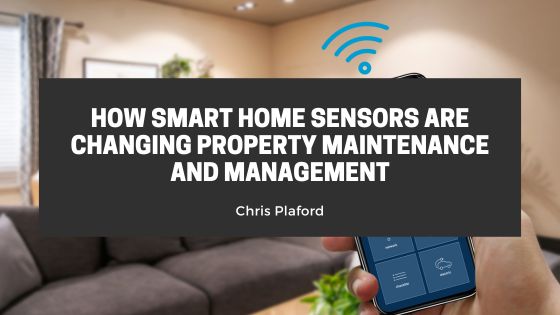The real estate and property management landscape is undergoing a technological transformation. Among the most impactful innovations are smart home sensors, which are reshaping how properties are maintained, monitored, and managed. These devices provide real-time insights into home systems, helping property owners, managers, and residents prevent issues, optimize efficiency, and make informed decisions.
What Smart Home Sensors Do
Smart home sensors are devices designed to monitor various aspects of a property, from environmental conditions to system performance. Common types include water leak sensors, temperature and humidity monitors, motion detectors, door and window sensors, and energy usage trackers. These sensors collect data continuously and transmit it to a central hub or mobile application, allowing property stakeholders to monitor conditions in real time, even remotely.
Preventing Damage and Reducing Costs
One of the most immediate benefits of smart home sensors is the prevention of damage. Water leak sensors, for example, can detect small leaks in plumbing systems before they escalate into costly floods or structural damage. Early alerts allow homeowners or property managers to respond quickly, potentially saving thousands of dollars in repairs. Similarly, temperature sensors can detect heating or cooling system failures before they affect comfort or cause energy inefficiencies, reducing maintenance costs and preventing more serious problems.
Enhancing Energy Efficiency
Smart sensors also contribute to more efficient energy management. Motion and occupancy sensors can regulate lighting and heating or cooling systems, ensuring energy is used only when needed. Temperature and humidity monitors help maintain optimal climate conditions, reducing waste and lowering utility bills. Over time, these efficiencies not only save money but also extend the lifespan of critical systems by reducing unnecessary wear and tear.
Improving Property Management and Oversight
For property managers overseeing multiple units or buildings, smart sensors offer significant operational advantages. Remote monitoring allows managers to track system performance across properties without the need for frequent physical inspections. Alerts can be set up for any unusual activity, such as water leaks, excessive energy usage, or unauthorized access, enabling proactive management. This real-time oversight improves responsiveness, enhances tenant satisfaction, and streamlines maintenance workflows.
Enhancing Tenant Experience
Smart sensors also provide benefits directly to residents. Automated alerts and insights help tenants maintain their homes more effectively, ensuring comfort, safety, and convenience. For instance, smoke or carbon monoxide detectors integrated with smart systems can notify residents of danger immediately, even when they are away from the property. These features make properties more attractive to tenants, adding value to both rental and resale markets.
The Future of Smart Sensor Technology
As smart home technology advances, sensors are becoming more sophisticated. Integration with artificial intelligence and machine learning allows predictive maintenance, where systems anticipate issues before they occur. Sensors can also integrate with broader smart home ecosystems, enabling seamless automation of lighting, security, climate, and energy systems. This level of intelligence transforms property management from reactive problem-solving to proactive and strategic oversight.
Conclusion
Smart home sensors are changing the way properties are maintained and managed by offering real-time monitoring, early issue detection, and operational efficiency. From preventing costly damage to enhancing tenant satisfaction, these technologies provide tangible benefits for property owners and managers. As sensor technology continues to evolve, the integration of intelligent systems will become an essential aspect of modern property management, making homes safer, more efficient, and more attractive to residents.
